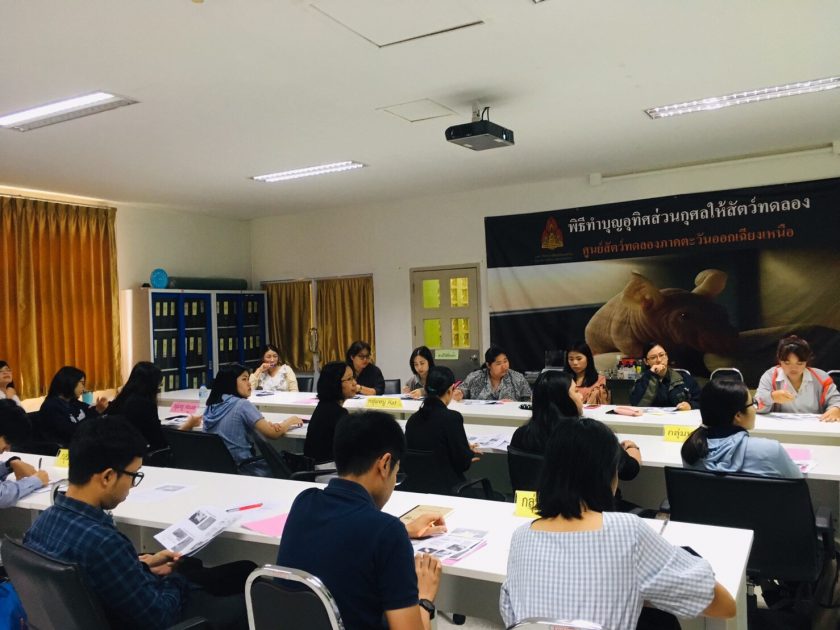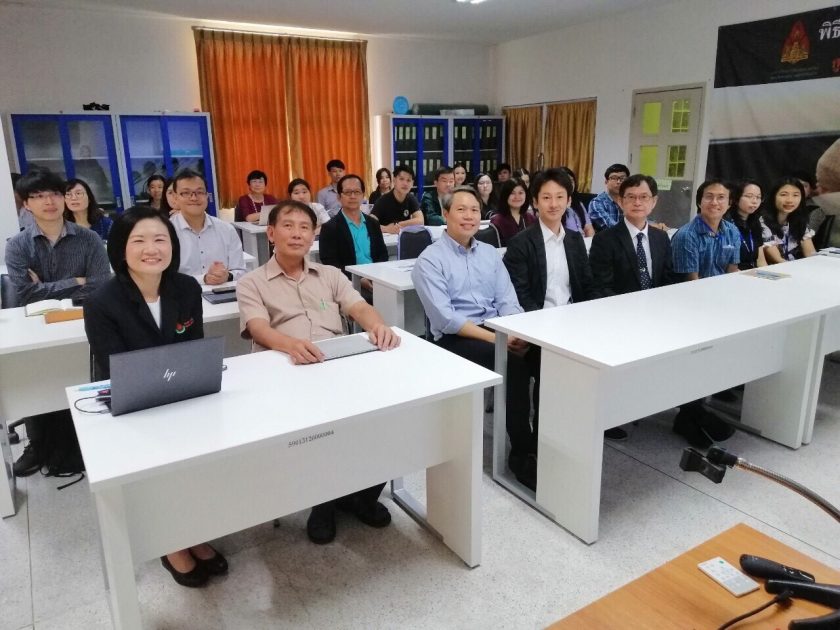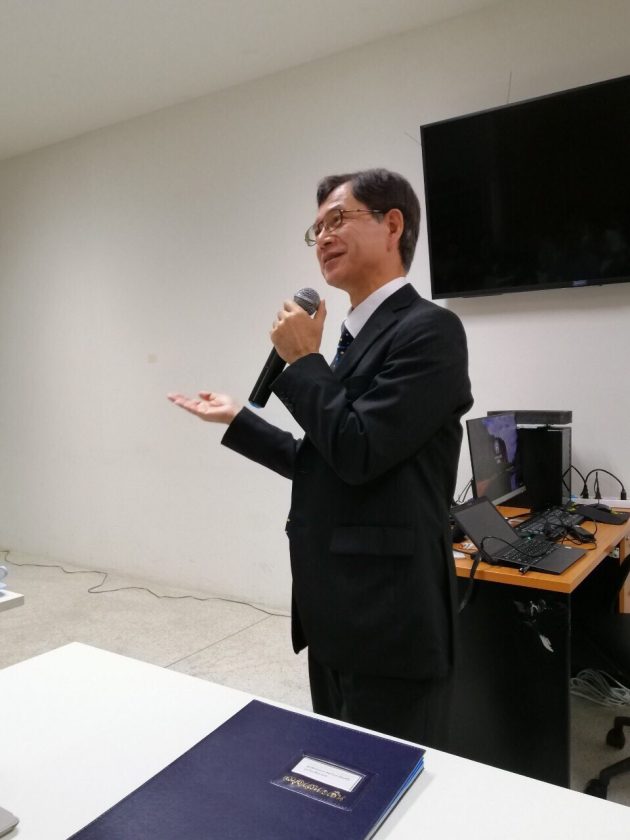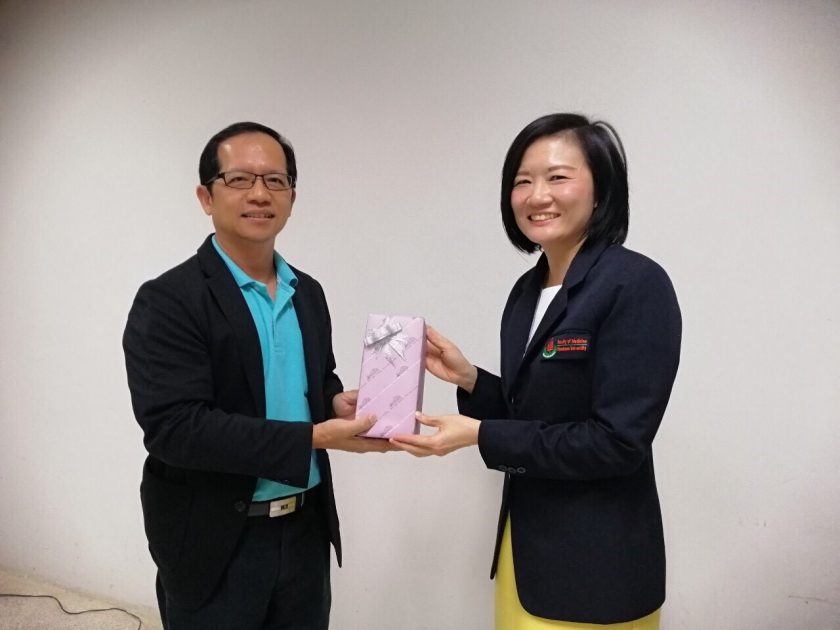Prof. Monchai Dunagchinda, Vice President for Research and Academic Services welcomed Japanese professors and experts from Kumamoto University, Japan
July 4, 2019 – Prof. Dr. Monchai Duangjinda, Vice President for Research and Academic Services, Assoc. Prof. Somboon Saengmaneedet, Director of the Northeast Animal Experimentation Center and Prof. Sophit Wongkham, Asst. Prof. Kulthida Wetheewutthajarn, from Department of Biochemistry, Faculty of Medicine welcomed Prof. Dr. Seiji Okada and Senior Asst. Prof. Dr. Toru Takeo from Kumamoto University, Japan at Sirikunakorn Building, Khon Kaen University.
Prof. Dr. Seiji Okada and Senior Asst. Prof. Dr. Toru Takeo visited KKU in order to discuss research collaboration and transfer of knowledge in animal experimentation. The experts also gave a special talk on “Genetically modified mouse in the biomedical sciences: reproductive technology and usefulness as a disease model” in the 2019 training and workshop on experimented animals project to lecturers, researchers and personnel of Khon Kaen University at Northeast Animal Experimentation Center.
Assoc. Prof. Somboon Saengmaneedet, Director of the Northeast Animal Experimentation Center explained that the talk was beneficial to those who attended since it aimed at transferring knowledge and understanding in handling experimented animals that will lead to efficient outcomes and worth the lives of the animals. The outcomes will also be accepted internationally. The session also opens a chance for KKU staff to exchange knowledge with experts from Kumamoto University, Japan.
“Asst. Prof. Kulthida Wetheewutthajarn, from Department of Biochemistry of Faculty of Medicine is a researcher who conducts studies on cancer and needs to use immunity-deficient mice as experimented animals. These mice have to be bought from overseas. Therefore, the Japanese experts have been invited in order to give recommendations on the readiness of the laboratory to perform this research. The work also responds to the university policy, Research Transformation, that aims at building innovations and builds a network of collaboration with a university abroad. It is expected that the outcomes will benefit the quality of life of people in Thailand. If the Northeast Animal Experimentation Center is able to acquire the mice, many benefits would occur in the study of the disease mechanisms and efficient future treatment,” the director of the Northeast Animal Experimentation Center said.
The 2019 training and workshop on experimented animals project was scheduled for 2 days. On July 4, 2019 the activities included catching, controlling, forcing animals, giving elements via tube or injections, blood sampling, blood collection at the end of the test, applying anesthetic both by inhalation and injection, autopsy, and collection of organs. The session of July 5, 2019 included transfer of knowledge and research presentation related to genetically modified mice, reproduction technology and benefits of disease models in order to prepare for research development in animal experimentation and the study of disease mechanism for improved treatment in the future.




News / Photos: Natarada Wetheewuthajarn and Rawiporn Saisaenthong





